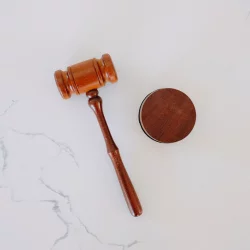NOW REVEALED: 8 Secrets the DUI Prosecutor Hopes You NEVER Discover!
NOW REVEALED: 8 Secrets the DUI Prosecutor Hopes You NEVER Discover About Your Florida DUI Case!!
1. If everyone insisted on their constitutional right to go to trial, the DUI Prosecutor would be in court all day. Prosecutors or State Attorneys do not want to spend all day in court!
2. Very often, the mandatory minimum sentences for DUI are so harsh that a defendant in a DUI trial has little risk absolutely by taking the matter to trial.
Many clients will ask if a judge will punish them with a harsher sentence if they insist on their right to trial. The Florida legislature has recently raised the minimum sentence for all DUI cases to such a high level, that, if you decide to go to trial on your case, very often you will receive the same sentence as the person who pleads guilty.
3. The State Attorney doesn't want to be there any more than you do.
No one accepts a job with the State Attorney's Office because they wanted a career prosecuting DUI cases in criminal court! Any State Attorney would rather be prosecuting serious felony cases than handling a traffic court docket. Moreover, the State Attorney has 40 to 50 other cases with attorneys on the criminal court docket that they must handle that day. In Broward County alone, there could be at least five separate courts with fifteen different State Attorneys handling matters every day. The first State Attorney to arrive to work in the morning would get to pick which courtroom they would be in in order to pick the judge that was known to be the fastest, so they could be through with court as soon as possible.
4. The State Attorney is never fully prepared. He has too many cases to juggle each and every day.
In most of the jurisdictions in Florida, State Attorneys DO NOT review traffic cases ahead of time. My clients are shocked when I tell them that it is impossible for me to contact a particular State Attorney with knowledge about their case prior to the court date to discuss their case, because the State Attorneys do not review the case files prior to the court date. In fact, very often a DUI case is not assigned to a particular State Attorney until the last minute. Furthermore, in some smaller jurisdictions, if someone shows up without an attorney, the State Attorney does not get involved. In those counties, it is impossible for someone attempting to represent himself in these jurisdictions to discuss a possible plea bargain with the State Attorney, because the State Attorney will not speak to them. In other smaller jurisdictions, there is not even a State Attorney for any traffic case, even a DUI with an attorney!
5. The arresting police officer is unprepared.
Your case is just one of an entire docket full of cases that the officer has on that date. It is not unusual for an officer to have 15 to 20 DUI cases on one date in addition to dozens of other traffic tickets. The officer often has little if any recollection of your arrest. That becomes apparent time and time again in court when I object to an officer testifying by reading from his notes and, after my objection is sustained by the judge, it becomes immediately apparent that the officer has no independent recollection of the arrest.
6. State Attorneys know very little about the science (or lack thereof) behind field sobriety testing.
Standardized field sobriety testing is not something taught in any law school! At no time during law school does a professor ever say, "Today we're going to learn about standardized field sobriety testing." A thorough knowledge of these field sobriety tests would actually hurt the State Attorney's DUI cases. In fact it would stop them from making the argument that the results of these tests should be given more weight than they were ever intended to. For instance, the three standardized field sobriety tests currently in use can only be used to predict a Blood Alcohol Content (BAC) of .10 or above. Since the legal limit is now .08, there is almost no weight that a judge could give to these tests on someone with a BAC of .08 or .09.
7. The arresting officer did not follow proper procedures when conducting the field sobriety tests.
When a police officer receives proper training about field sobriety tests, he learns the proper standards and procedures used according to the National Highway Traffic Safety Administration ("NHTSA"). However, for example, on the "follow the pen with your eyes" test (the horizontal gaze nystagmus test, or HGN), the manual says that if the suspect moves his head during the test, the officer should use his flashlight or his free hand as a chin rest of the suspect. In all my years of practicing law, I have never known of an arresting officer using anything as a chin rest for a suspect, even though in almost every one of those cases the officer testifiee that the suspect was swaying and unsteady on his feet. The NHTSA manual also indicates that the walk-and-turn and one-leg stand test should not be done if the suspect is over 50 pounds overweight or has physical impairments that could affect his balance. The manual also states that the walk-and-turn test "requires a line that the suspect can see." This is rarely done.
8. The breath testing equipment is inaccurate and the State Attorney cannot provide the source codes to prove otherwise.
The breath testing machine is merely a "machine." The machine uses an assumption to calculate the amount of alcohol in a person's blood based on the amount of alcohol that is released into a person's breath. The amount can vary significantly. Because of this variance, the principle is flawed and readings can vary up to 50% from the actual breath content. The manufacturers of the Intoxilyzer 5000 have consistently refused to reveal their source codes to defense attorneys. The source codes provide the mathematical formula that the machine uses to convert a small sample of breath to a blood alcohol content number. Thus far, courts in Seminole County, Florida have already ruled that this refusal is a basis to dismiss DUI prosecutions. So far over 500 DUI cases in Seminole County have been dismissed by judges, based on the fact that the prosecutors cannot provide DUI defense attorneys with the source code to check the accuracy of these machines.
Richard G. Salzman, Esq. is an experienced Broward County attorney; licensed to practice law in New York and New Jersey since 1986, and Florida since 1988. The Law Firm of Richard G. Salzman focuses on Criminal Defense, DUI Defense and related vehicular offenses and BUI (Boating Under the Influence).
Law Offices of Richard G. Salzman, P.A. 4340 Sheridan Street, Suite 102 Hollywood, Florida 33021 954-981-0336
[email protected] www.salzmanattorney.com www.myspace.com/richardthelawyer
About the Author
Richard G. Salzman, Esq. is an experienced Broward County attorney; licensed to practice law in New York and New Jersey since 1986, and Florida since 1988. The Law Firm of Richard G. Salzman focuses on Criminal Defense, DUI Defense and related vehicular offenses and BUI (Boating Under the Influence).
Law Offices of Richard G. Salzman, P.A. 4340 Sheridan Street, Suite 102 Hollywood, Florida 33021 954-981-0336
More to Read:
Previous Posts:



